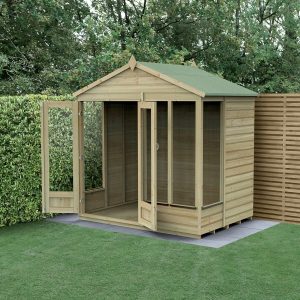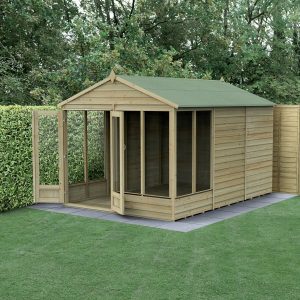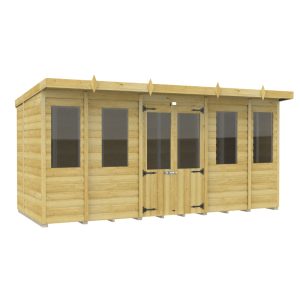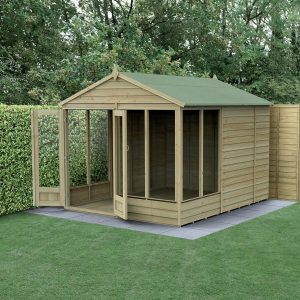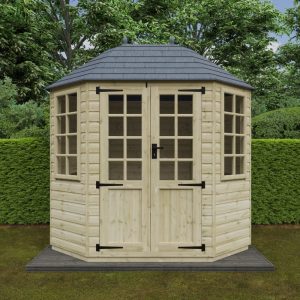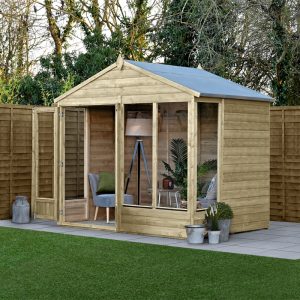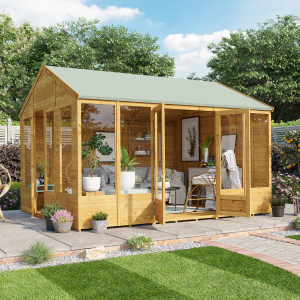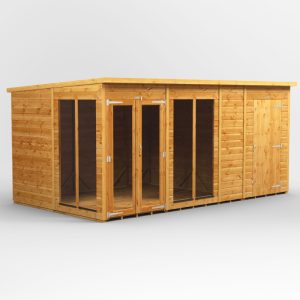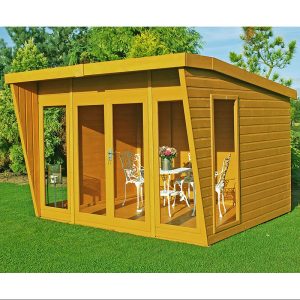The Redlands 8′ x 6′ Classic Summer Cottage embodies a classic design for your outdoor space, showcasing Georgian style semi-glazed double doors adorned with ornamental vintage-style hinges. This charming retreat also features two coordinated fixed windows to infuse the interior with ample natural light. Crafted from high-quality 12mm shiplap timber panels coated with our distinct red cedar water-based solution for durability. The floor and roof are built from sturdy 12mm tongue & groove panels, topped with mineral felt for enhanced weather resistance. All wood used in our structures is sourced from sustainable, legal origins, as certified. This item includes a 10-year warranty from Redlands Garden Buildings, safeguarding against typical timber decay; however, natural occurrences like warping and splits are exempted. Note that proper assembly on a stable base of durable material, and regular treatment with a premium preservative, following initial assembly, is imperative.










